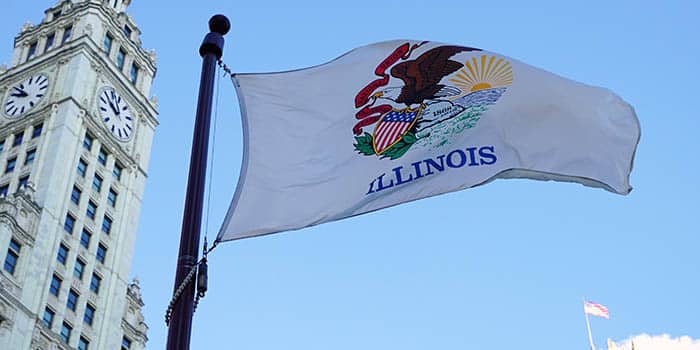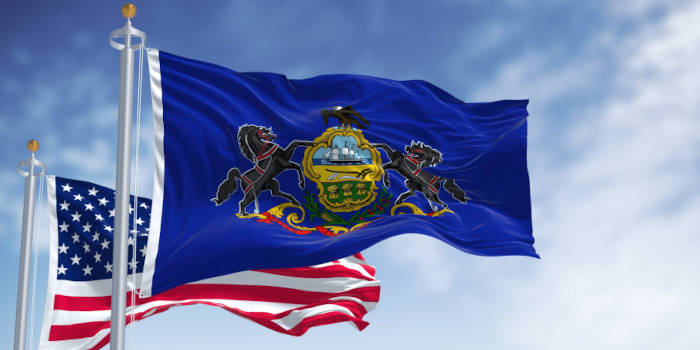- Casino
- By State
- Alabama
- Alaska
- Arizona
- Arkansas
- California
- Colorado
- Connecticut
- Delaware
- Georgia
- Florida
- Hawaii
- Idaho
- Illinois
- Indiana
- Iowa
- Kansas
- Kentucky
- Louisiana
- Maine
- Massachusetts
- Maryland
- Michigan
- Minnesota
- Mississippi
- Missouri
- Montana
- Nebraska
- Nevada
- New Hampshire
- New Jersey
- New Mexico
- New York
- North Carolina
- North Dakota
- Ohio
- Oklahoma
- Oregon
- Pennsylvania
- Rhode Island
- South Carolina
- South Dakota
- Tennessee
- Texas
- Utah
- Vermont
- Virginia
- Washington
- West Virginia
- Wisconsin
- Wyoming
- By State
- Slots
- Poker
- Sports
- Esports
Tennessee Signs Betting Handle Tax Bill into Law
The change would replace the GGR tax and make the state the first one to collect taxes based on betting handle and not revenue

Taxing a betting handle rather than gambling revenue isn’t a new concept. In the US, different states such as Minnesota and Kentucky, have previously filed such proposals that haven’t seen much success. Yet, against all odds, a bill proposing exactly that form of tax gained traction in Tennessee. Back in April, Senate Bill 475 (SB 475) successfully cleared the House. Consequently, it gained traction and received approval from the state Senate. This left the bill one step away from being signed into law.
Now, Tennessee Gov. Bill Lee, recently signed SB 475 into law, clearing the last hurdle for the legislative proposal. This means that Tennessee is expected to become the first US state to tax sports betting operators based on their handle and not on what they earn as revenue.
In addition to the changes in taxation, SB 475, which is expected to go live as of this July, introduces changes to the licensing fees for betting operators. The legislation changes the regulator’s name from the Sports Wagering Advisory Council (SWAC) to Sports Wagering Council (SWC). Ultimately, the new legislation seeks to deliver more funds in the form of tax revenue, which can boost different state programs.
The Legislation Removes Hold, Changes Renewal License Fees
Under the current tax scheme for betting in Tennessee, operators are subject to a 20% tax on their gross gaming revenue (GGR). Additionally, they are required to hold 10% of their handle each month. However, the new law effectively eliminates the need for a hold, a requirement that the lawmakers saw as ineffective, given that most operators weren’t able to achieve it, resulting in fines. As noted, the 20% tax on GGR will be replaced with a betting handle tax. Once SB 475 comes into effect, betting operators in Tennessee will pay a 1.85% tax on their betting handle for each month.
More changes to the regulations involve the fees operators pay to the state. The initial license fee that betting operators need to pay, which is $750,000, remains in place, however, the overhaul of the regulation implements changes to the renewal fees.
Under the existing framework, a license renewal fee of $750,000 is applicable, something that will change once SB 475 comes into effect. When this happens, the renewal fee will be replaced with a multi-tier system that depends on the operators’ betting handle. For example, a renewal license fee of $250,000 would be applicable for operators that have a betting handle of less than $100 million. With an increase in the handle, the renewal fees would also increase, under the new legislation.
Related Topics:
Jerome brings a wealth of journalistic experience within the iGaming sector. His interest in the industry began after graduating from college, where he regularly participated in local poker tournaments. This exposure led him to the growing popularity of online poker and casino rooms. Jerome now channels all the knowledge he's accrued to fuel his passion for journalism, providing our team with the latest scoops online.
Must Read
Legal
June 26, 2025
Entain Loses Trademark Battle in EU Copyright Clash
More Articles

















